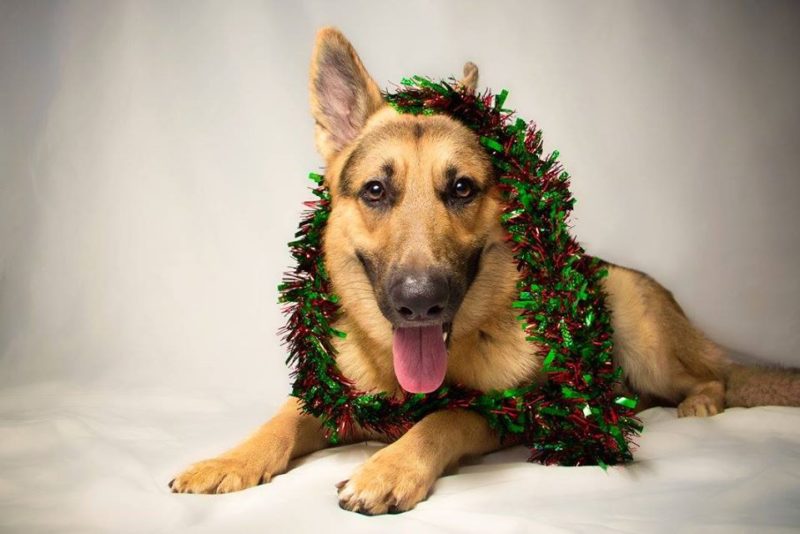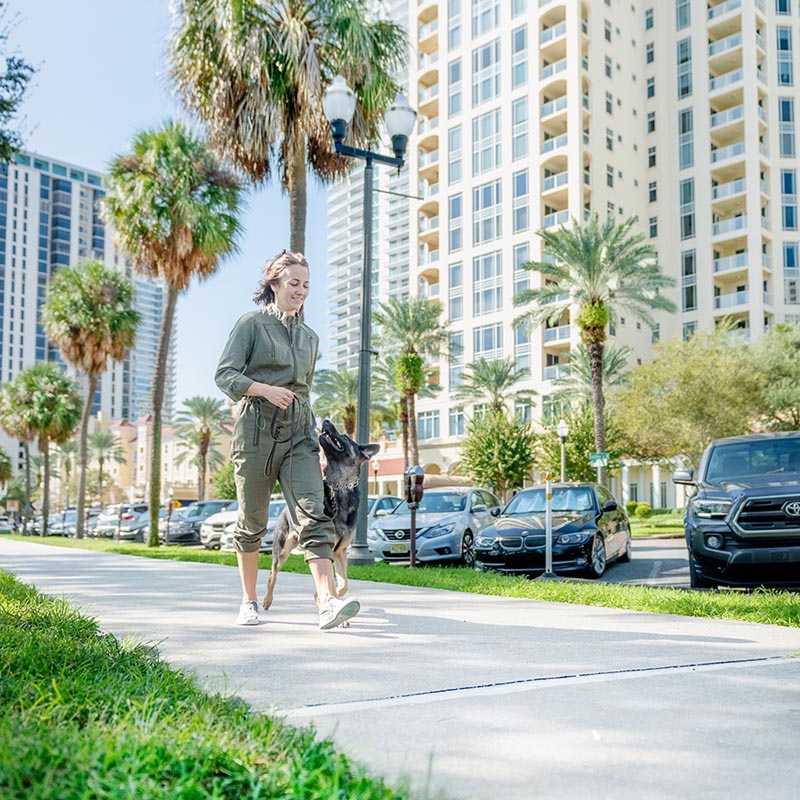Holiday Dog Training Tips
What are holiday manners? Can you reflect on a holiday gathering, birthday celebration, or social event and remember a well-behaved dog?
What was it about the dog’s mannerisms that caught your attention? Was it a calm dog that wasn’t pushing to be pet, a dog that had stellar obedience, or maybe it was just their looks?
Before throwing your next holiday event, here are some tips to guide you in determining how to best handle your dog and impress your guest with their holiday manners. This strategy will ensure your guest can leave your house with an excellent impression of your dog. (And no, that doesn’t include drool and dog hair plastered to their clothes. It also doesn’t mean fear and intimidation of your dog!)
Excitable Dogs:
- Before having guests over, make sure you have physically exercised your dog.
- Have your training tools already on the dog before guests arrive. Use a short tab, so a leash is not dragging.
- Have a plan for when guests start arriving. These moments will be very stimulating for your dog but should get less exciting after the 3rd guest. Establish a location for a dog bed that you can assign the “place command .”Hold your dog accountable for breaking the “place” with your training tools. Have treats available to reward your dog for good behavior.
- Have a crate or room set up if your dog gets overwhelmed or stimulated. A little break goes a long way, rather than your dog getting rewarded for pushy behaviors such as jumping, pushing into people for petting, and barking.
- If your dog starts begging or stealing food, it is best to use the off-leash electric collar. This behavior is advantageous and a bad habit to break. Step off to the side and do a “setup.” This correction should curve the counter surfing. (This tip is only for graduates who know and understand an off-leash collar.)
**If one of your guests is feeding the dog, correct the guest! - Don’t allow guests to over-excite your dog and enable behaviors you don’t tolerate. This situation is an excellent opportunity to separate your dog and give them an interactive toy in a separate room.
Aggressive Dogs:
- Before having guests, ensure you have practiced obedience throughout your home, inside and out. Set the stage for leadership, boundaries, and state of mind before your guest starts arriving. Make sure you physically exercise your dog and have the “edge” taken off them through this outlet.
- Have your training tools already on the dog before guests arrive. Use a short tab, so a leash is not dragging.
- As guests arrive, expect your dog to get agitated and bark. Acknowledge the bark and then use the command “enough .”If they continue to bark, follow up with a training correction to decompress their building with each arriving guest. Do not empower the dog by letting them charge the door, continually growl/bark, or circle your guest. Instead, take them to an assigned crate or room. Have a white noise machine, have chew toys, and have their favorite bed set up. Lock the door, so nobody wanders in. Also, put a sign on the door that warns the dog is in the room. The last thing you want is for a guest to get bitten.
**No matter how much Uncle Ned swears all dogs love him, it is not worth the bite and emergency room trip on Christmas Eve!
Fearful Dogs:
- Before having guests over, ensure you have physically and mentally stimulated your dog through obedience and exercise.
- Use baby gates until your dog is comfortable with your guests inside. Have a sign on the baby gate that reads, “Please don’t pet.” If your dog seems ready, allow your dog to be curious and investigate your guests.
- Have treats available for your guest to give your dog rather than having them bend down with their hand out to pet them. If the dog is too shy or fearful of taking them, they can toss the treat toward the dog.
- Don’t allow guests to overwhelm or crowd your dog. If you notice your dog trying to get away, take them back behind the baby gate or in a separate room.
- If your dog is showing signs of being stressed, such as licking their lips, yawning, or pacing, have a separate room ready with white noise playing and a cozy bed. They have no interest in a party, and that’s ok!
Conclusion
Teaching your dog holiday manners is important to cultivating a safe and enjoyable holiday experience. Depending on the dog, this training may look different, but at the end of the day, the goal is to keep both your dog and your guests stress-free and safe! For the ultimate worry-free experience, book your dog for our Full-Service Training and let us help you succeed!
Happy Holidays from The Doghouse, LLC



